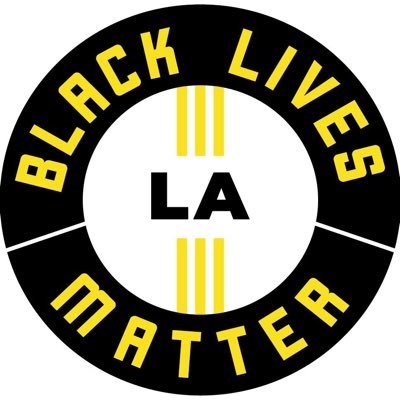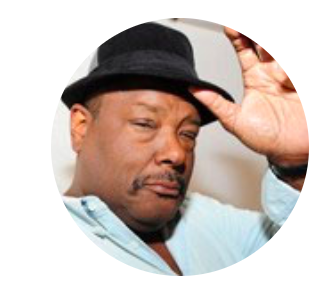|
This piece was originally published in the Stansbury Forum on June 6, 2020. The Stansbury Forum is a website for discussion by writers, activists and scholars on the topics that Jeff focused his life on: labor, politics, immigration, the environment, and world affairs. Please be sure to check out their impressive work and support their mission. The original link to the piece is here and their website is here. The Narrative of Changeby Gary Phillips Trying to get a breath in a time of COVID 19 and knees to the neck. I belong to several dues paying mystery writer associations. These groups do not have the collective bargaining power for its membership like my white-collar Hollywood union the Writers Guild of America (WGA). The WGA has a past when its members got in the face of the studio bosses and some got their heads knocked in for their efforts and others blacklisted. Different then from the WGA, these aforementioned associations don’t exact a floor for book advances, set a standard pay for a short story of a given length, or seek to establish working conditions for the writer – which in the case of prose writers as distinct from script writing; it’s a solitary undertaking. But not for nothing the Mystery Writers of America (MWA), a national board I once served on as well as past president of the local chapter, does have as its motto, “Crime doesn’t pay…enough.” To that end the 75-year-old MWA has used the bully pulpit to advocate for a better status of genre writers, intervened in contract disputes, called to task shady publisher practices, and more than anything, provided a way for established pros to interact with first timers or those looking to get published. This through formal talks and seminars as well as bending an elbow at a neighborhood tavern or the bar in the evening during a mystery convention. And like the history of a lot of unions, the MWA wasn’t always diverse. It would be fair to say the MWA was something of a white old boys club for many a year. In fact, Sisters in Crime (SinC) was founded in 1987 by 26 woman crime writers including bestseller Sara Paretsky specifically to address the frustration they had with the obstacles they faced in publishing, and not receiving their fair share of book reviews in a field then dominated by male reviewers. Today matters are different. There is not only diversity of gender and race/ethnicity on the board of the MWA as well as sister misters on the SinC board, the membership reflects a changed landscape of the types of writers penning these stories. While the police procedural is still told, it could be a story of cop who’s a black woman confronting departmental racism to do her job right. Or about an Asian-American private detective who not only is perceived a certain way by others but is investigating the questionable death of a suspect at the hands of the police or some other so-called authority. No surprise then when in 2018 the MWA awarded former prosecutor turned author Lina Fairstein its Grand Master award and the membership rose up in opposition. Fairstein to many, me included, helped railroad, along with the police, five black and brown teenager into prison for serious time, convicting them of rape and beating a victim half to death in a “wilding incident” in the infamous Central Park Five case. A case where DNA finally exonerated the now grown men and the city paid out $41m in a settlement. The award was soon rescinded. Fairstein who has a solid record of pursing justice for years in cases of sexual offenses, maintained the youths were involved in some way in the rape in an op-ed piece she wrote for the Wall Street Journal in June 2019. Really the surprise was the MWA board picking Fairstein and claiming not to know the controversy surrounding her. Now in the wake of nation-wide protests sparked by the death of George Floyd, captured agonizingly on smartphone video, by fired Minneapolis police officer Derek Chauvin (now charged with 2nd degree murder), the MWA and SinC (and I’m a sister mister) have both stepped up. The organizations issued statements in support of efforts at reform of the police. From SinC’s statement, “The murders of Breonna Taylor, Ahmaud Arbery and George Floyd are only three recent reminders of the 400-year history of violence visited upon Black people of the United States.” “Listening leads to understanding, and action leads to change,” the MWA’s statement read in part. On a listsev I’m part of, Crime Writers of Color, various discussions fly back and forth via email among the loose-kinit group – some of whom are part of the MWA and SinC. The morning following the publishing of these statements, folks on the listserv heard of examples of pushback from the membership, and the nature and character of such was bandied about. More importantly, reality demands that writers of color and their white colleagues have to re-evaluate what they write and how in they tell the story. There is no getting around the way in which black and brown communities are policed, be the cops white or not or a mixture as was present at Mr. Floyd’s demise. In this time of the virus that too will have to be depicted in some way in our fictions. Yet not every mystery story has to be about that (though I can imagine a story where a murderer kills someone and tries to make it look like complications from COVID) or the use of excessive force and race. But me and my fellow crime writes are challenged to consider the point of view, of who is telling the story and thus who controls the narrative…from the hardboiled to the cozy.
The following is an interview between J. Sam Williams and Gary Phillips: SW: On June 6th The Stansbury Forum published a piece by Gary Phillips, Crime and Mystery Author from Los Angeles. The piece, The Narrative of Change, tackles change in the literary world during this time. This interview follows up with Phillips about the ideas addressed in the article. Gary Phillips has a long history of crime and mystery novels, along with his work for DC Comics. His latest project re-images Matthew Henson, a real life North Pole explorer, as a hero during the Harlem Renaissance in “Matthew Henson and the Ice Temple of Harlem.” Phillips has worked as an activist surrounding police brutality prior to his writing career. Diversity and Inclusivity SW: This could absolutely be chalked up to the fact that I'm in my late-twenties, but it feels like in the last half decade or so, efforts to diversify the people in charge--whether that's a board of governors; state and federal congress people or even school administrations--have gained more traction. At the same time, it seems the voices who call out "diversity for diversities sake is wrong" have escalated to quell any progress. When the MWA and SinC started the shift towards more diversity was there a backlash, and what was the response to that backlash?
GP: What can I say to bullshit like that except keep pressing on. Publishing remains as white as it did in terms of the upper echelon four years ago. There’s more interns of color so there’s that, therefore a better chance for a few of them to make it through upstream. Recently YA author L.L. McKinney who is black started the hashtag PublishingPaidMe. While the results writers put up weren’t comprehensive, still someone like 3-time in a row Hugo award winner N.K. Jemisin got a $25,000 advance for each of those books in her trilogy and had to fight to get a 100 grand advance the next time. Debut white writers with no track record or fan base often got much larger six figure advances. SW: It feels as if over the last three or four years we've seen corporations, boards, guilds, etc., do a quick 180 on awards, ads, choosing hosts, etc., like with the 2018 MWA award that Lina Fairstein won and then had rescinded (for more details read the article). Kevin Hart was removed as Oscar host for homophobic tweets, more advertisers leave various Fox News shows, and even Gone with the Wind was temporarily taken down from HBO Max. Why do you think we're seeing these 180s? Is it because authority is finding a conscience? Is it because of public outcry? A more diverse workplace? Social Media accessibility? GP: For sure all those are factors. NFL commissioner Roger Goodell admitting we were wrong for not listening to players protesting police abuse, meaning the NFL eating cheese when Trump accused Colin Kaepernick of being un-American for taking a knee during the National Anthem. This is about capitalism. A whole lot of all kinds of people buy sneakers, stream movies and on and on. You can’t ignore a paying customer or they just might go elsewhere. SW: And when do you think we'll see a more permanent change where those awards, and shows, and hosts are vetted, and not handed out to those who don't deserve them? GP: I suppose when the Academy and what-have-you is compiled of a more diverse body. Though bear in mind it’s one thing for Nike to say they’re down for Black Lives Matter, but another to truly diversify their board. Police & Crime Novels SW: Within the month, we've seen the shop Cops canceled after 31 years. Brooklyn Nine-Nine show runners discussed how the next season (season 8) will be shaped by the protests against police brutality. There seems to be a change of thought in how we portray police in media and literature. Moving forward how do you think cops in mystery writing, crime fiction, movies and TV shows will change? Or will it? GP: I don’t read that many police procedurals. But yes on TV and in movies, we have the rogue cop, divorced, maybe drinks too much, yeah he beats a suspect now and then or threatens to blow their ear off, but we the viewer have seen that scumbag do his dirt and knows he deserves it. We excuse that behavior. Or a Jack Bauer-type who has to torture that evil Muslim bastard to save them kids on the school bus. Once the dust settles, we’ll still be getting plenty of that. But this moment has also clarified that as a critical storyteller you’re compelled to show the likeable maverick cop can be racist, can have his or her judgment clouded because of that and thus make mis-steps, and have to pay the consequences for that. I believe this narrative space has opened up. SW: You talk about "reality demand[ing] that writers of color and their white colleagues have to re-evaluate what they write and how in they tell the story." What does that re-evaluation look like to you, and what does that result in? GP: For me I hope that re-evaluation means I’m always trying to further and deepen my work. That if I write a female character or a character who is of a different race/ethnicity, trans or nonbinary or what have you I do the best I can to make them dimensional on the page. That doesn’t mean I’m making them all holy and righteous. That’s boring. I want to make them interesting, compelling, contradictory as hell. SW: In your own writing, how has your experience with police shaped the way you tell stories? Do you think the cultural gap of police treatment of Black people vs. White people contributes to the way authors of various phenotypes and cultures write about police? GP: For sure we bring to the table our past and what we’ve inputted. Growing up in South Central, tales of beatings brothers would get from the white cops out of the 77th were the Boogie Man stories of my childhood told in the neighborhood barber shop. These were not the cops of Dragnet and Adam 12. I knew when I was ready to tell a mystery story, this after years as an activist around police abuse issues and other matters, it would be from the point of view of a black private eye. One that hadn’t been a cop as was often the case in PI novels. I wanted him to be an outsider to law enforcement. A man who could get pulled over driving while black. But his was a world post the civil unrest of 1992 – his case in fact revolving out of that (Violent Spring). Change SW: Moving outside the lense of just publishing and media, do the protests surrounding George Floyd, Breonna Taylor, and Ahmaud Arbery feel like a moment of real change? Are we going to look back and see this as the tipping point of years of protest since Michael Brown's death, or is this the start of something new? GP: Defund the police has teeth. Yeah, this time it’s different. SW: You mention groups that are causing change like: "Black Lives Matter, L.A. Community Action Network, Stop LAPD Spying Coalition, and others[.]" I feel a lot of folks don't know what change looks like. In your opinion, what does it look like? GP: Change ultimately is no more George Floyds isn’t it? Direct action is about affecting policy and procedures. In this particular political moment that has happened. But how is it sustained? It’s because grassroots groups who have been on the frontlines for a minute, who introduced such ideas as policing the police when no one would listen to that kind of crazy talk, planted those seeds this watershed event helped sprout. But I am mindful what Malcolm X said: “You can’t legislate goodwill, education does.” Even being on that brave young woman’s video (and not his body cam) that cop never took his knee off of Mr. Floyd’s neck as he cried out for his mother. Not once did he let up. Not once did the other three officers intervene. SW: You also mention the budget cut to the LAPD proposed by the Mayor of LA. Many believe that defunding the police means completely removing police from the scene, but in your eyes what is the defunding movement? GP: To me, the defunding movement doesn’t mean eliminating the police entirely. It does mean that a lot of what they get funded for in terms of militaristic weapons, anti-personnel vehicles, and so on can be better directed to mental health resources. Or now we’re seeing that municipalities are reconfiguring response mechanisms so the cops aren’t the first ones called to deal with a homeless encampment – assuming that’s something to deal with. SW: Do you think people need to keep the pressure on, like demonstrations in the 60s that would last for six, seven months in order to enact real change? GP: Pressure takes various forms. Ideally, it’s our local elected representatives who enact the changes we want to see. They have responded to our collective demands. That certainly is not always the case. Mindful of what I said earlier, another prong of direct action has to be the electoral arena. It does make a difference in this bourgeois democracy of ours who sits in those seats. SW: Stephanie Beatriz, who plays Detective Rosa Diaz on Brooklyn Nine-Nine donated $11,000 to the National Bail Fund Network and called for actors who play police officers to do the same. Do you feel there should be a similar movement from writers who've made their money off of crime fiction and cop stories? GP: Far be it from me to suggest how any of my colleagues should spend their money. I’m being a bit facetious as I know some of them have given in this time. But it’s worth noting Sisters in Crime, of which I’m a member as well, does offer the annual Eleanor Taylor Bland Crime Fiction Writers of Color Award an annual grant of $2,000 for an emerging writer of color. The grant is intended to support the recipient in crime fiction writing and career development activities. The late sweet Eleanor was one of us, among the third wave. About the author and interviewer:
Donate and take action with the organizations that Gary mentioned:
|
AuthorOur fabulous blog team Archives
June 2024
CategoriesAll 12 Songs Art Art And Athletes Book Review Chorus Blog Date This Book Game Of Narratives Guest Blog Letter From The Editor Lifehacks Movies Of 2019 Music Pup Sounds Smackdown Strive For 55 Summer Playlists |







 RSS Feed
RSS Feed